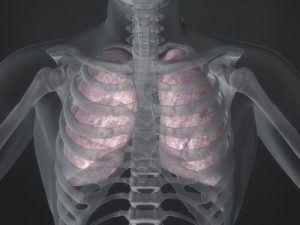 In this article, I will outline what COPD is, its signs and symptoms, who suffers with the condition and various ways to manage the condition.
In this article, I will outline what COPD is, its signs and symptoms, who suffers with the condition and various ways to manage the condition.
What is COPD?
Chronic– Long term condition which has been present from 6 months or longer, this has no bearing on the severity of the condition, only the time frame over which it occurs.
Obstructive– Due to repeated exposure of the lungs to harmful substances such as cigarette smoke, asbestos, silicon fibres and coal dust, the airways become inflamed. This inflammation causes mucous formation with the passages which can produce small mucous plugs- obstructing air flow into and out of the lungs.
Pulmonary– This refers to the lungs and includes all of the connecting airways from the mouth and nose into both lungs including the windpipe, bronchioles (tubes within the lungs) and the tiny air filled sacs within the lungs (alveoli).
Disease– DIS-EASE, which shows that something is not as it should be within the body, there is a deviation from normal function of the lungs.
What causes COPD?
COPD is caused by the long-term exposure of the lungs to substances such as cigarette smoke and when working in jobs such as mining, asbestos removal and sandblasting without the appropriate safety gear.
Signs and Symptoms
- Increase in breathlessness
- Increased fatigue
- Development of a persistent cough
- Increase in sputum production of various colours
- Recurrent chest infections
Managing COPD
Medication– Once you have been diagnosed with COPD by your GP, consultant or other appropriate healthcare provider there are various medications which are commonly utilised.
- Short Acting Bronchodilators (Inhaler)- These medications work quickly for around 3-4 hours and help to relax the muscles in your airways, allowing them to open, reducing the level of obstruction.These medications are usually Salbutamol (Ventolin) or Ipratroprium Bromide (Atrovent)
- Steroid/ Anti- Inflammatory (Steroid inhaler)- These may be used on a daily basis to reduce the inflammation in your airways furthering reducing the obstruction. These are often Pulmicort, Becotide or Flixotide.
- Osteoporosis medications may be utilised to prevent negative side effects from long term anti-inflammatory usage.
- Antibiotics, higher strength steroids, and anti-mucous medication are all utilised if you experience an exacerbation of your condition.
Chiropractic– Due to the changes in the way you breathe the biomechanics of your rib cage, thoracic spine and breathing muscles are all altered. For further information or how a condition such as COPD may affect how your body functions it is worth reading my original core stability articles found below and considering fascial lines and the diaphragms function in breathing and the core.
Chiropractic care is not intended in any way to replace that recommended by your GP or consultant.
Diet and Lifestyle– Below are a few ways to improve your lifestyle that can make a big difference to your symptoms.
- Utilise NHS resources to help you quit smoking. Counselling (https://www.facebook.com/awarenessinmind ) can also help to reduce addictive habits.
- Eat a healthy balanced vitamin rich diet to help reduce infection risk.
- Exercise regularly to help increase your lung capacity. Discuss this with a medical practitioner or personal trainer for help.
- Visit a Buteyko breathing practitioner to learn to manage your complaint.
- Increase your water intake to thin your sputum and keep your airways moist and lubricated.
- Eat small frequent meals to avoid bloating.
- Utilise bone density enhancing supplements such as the one found here. https://www.biocare.co.uk/default.aspx?GroupGuid=29&ProductGuid=24490&Pa…
- Use a Humidifier when sleeping and ensure a temperature of around 21 degrees is achieved within the room.
How to manage COPD?
The first step in the management of COPD is to be diagnosed with the condition by a primary healthcare practitioner utilising various testing procedures. After this, several steps can be used to manage your condition.
- Control Phase- If your symptoms are stable and not worsening then continuing with your medication (Bronchodilators) (Anti-Inflammatories), improving your health and diet and practicing breathing techniques are the best course of action
- Caution Phase- if you are experiencing an exacerbation of your normal symptoms due to an infection, the weather or pollution, it is at this point that reliever medication is utilised or antibiotics, steroids and anti-mucous medications are prescribed if the normal measures do not control the symptoms.
- Alert Phase- If your exacerbation continues to worsen and you develop additional symptoms such as ankle swelling, fever and chills and an inability to perform normal tasks contacting emergency health advice and care is advised.
If you have any questions about how to help your symptoms or how chiropractic care may benefit you, please do not hesitate to contact the clinic or your primary healthcare provider.
